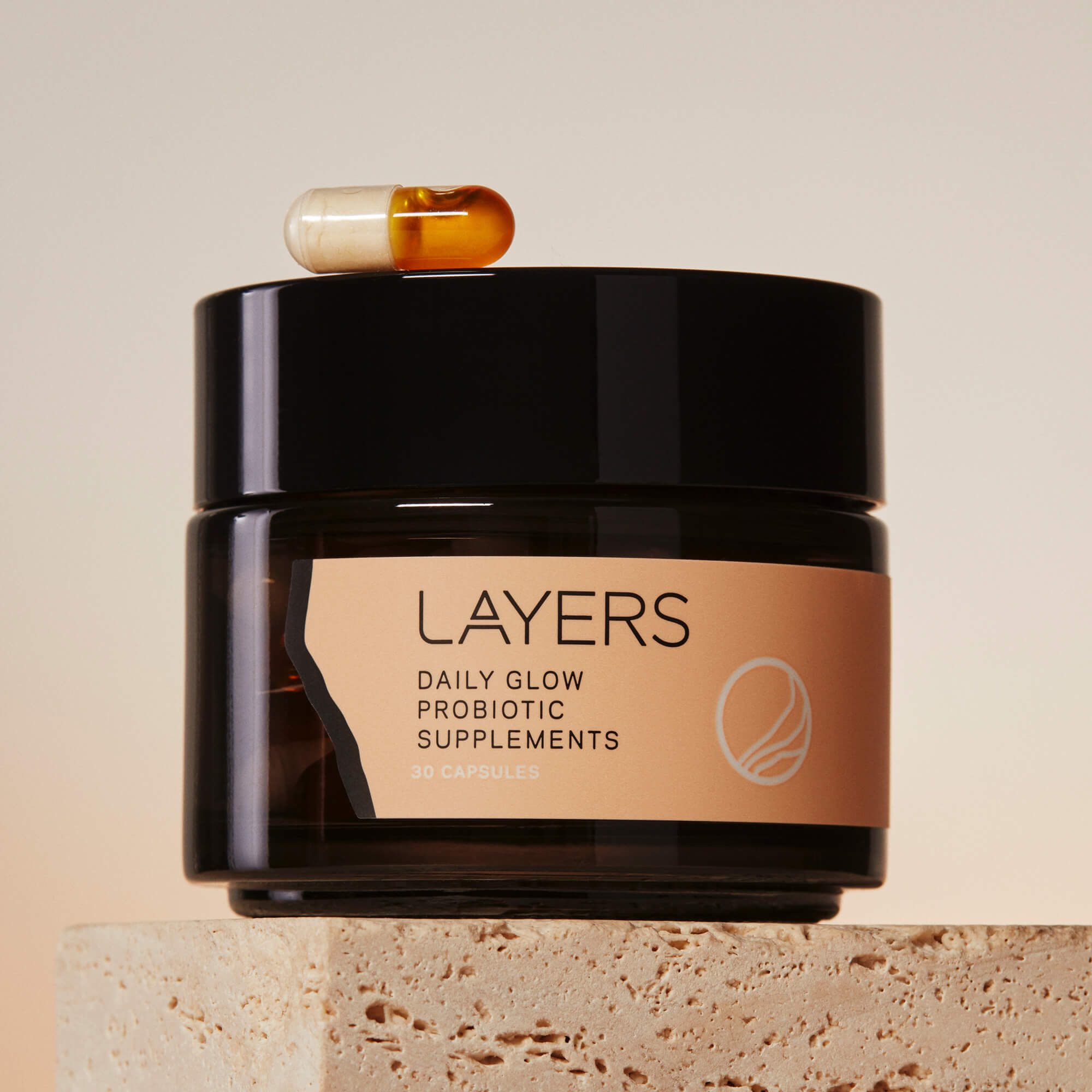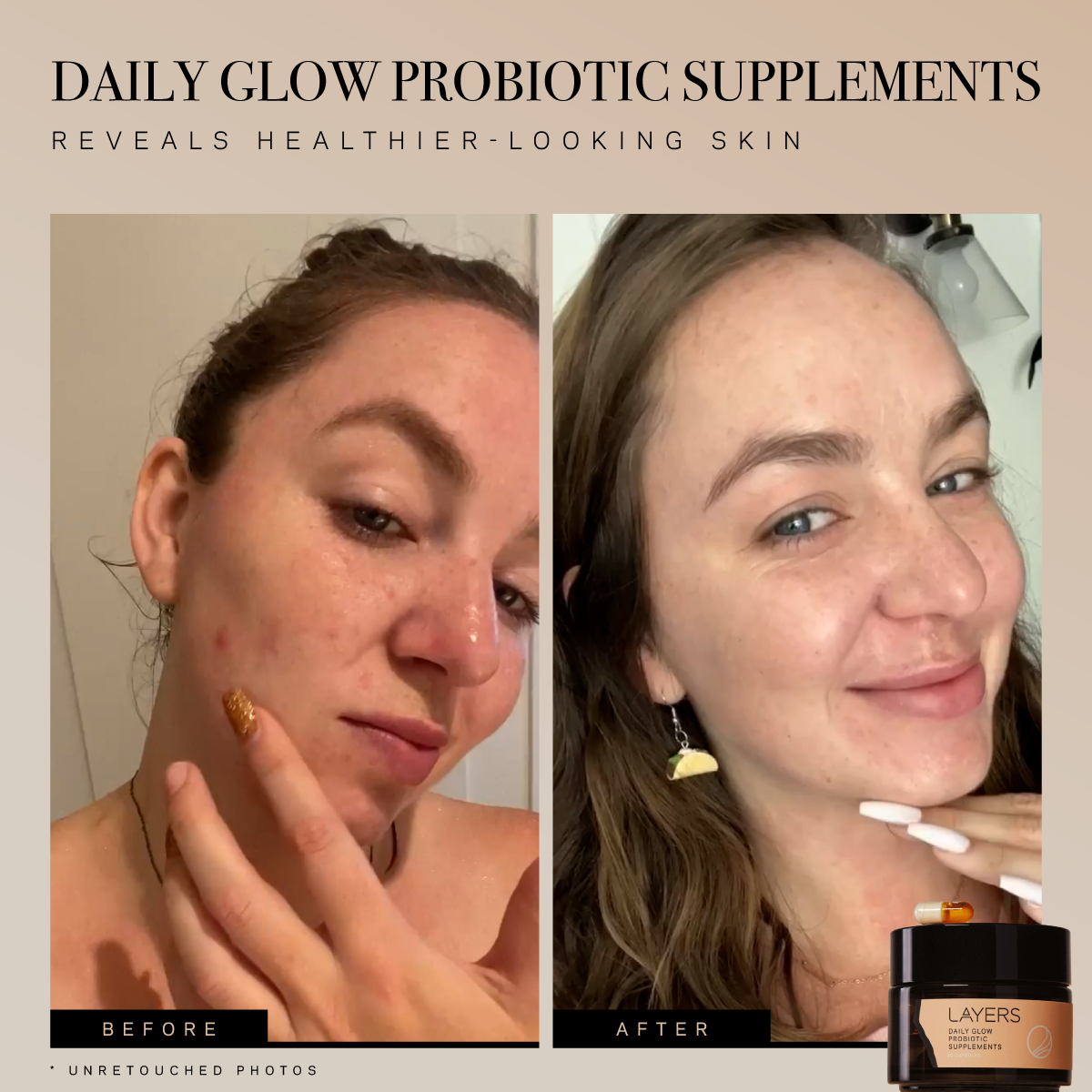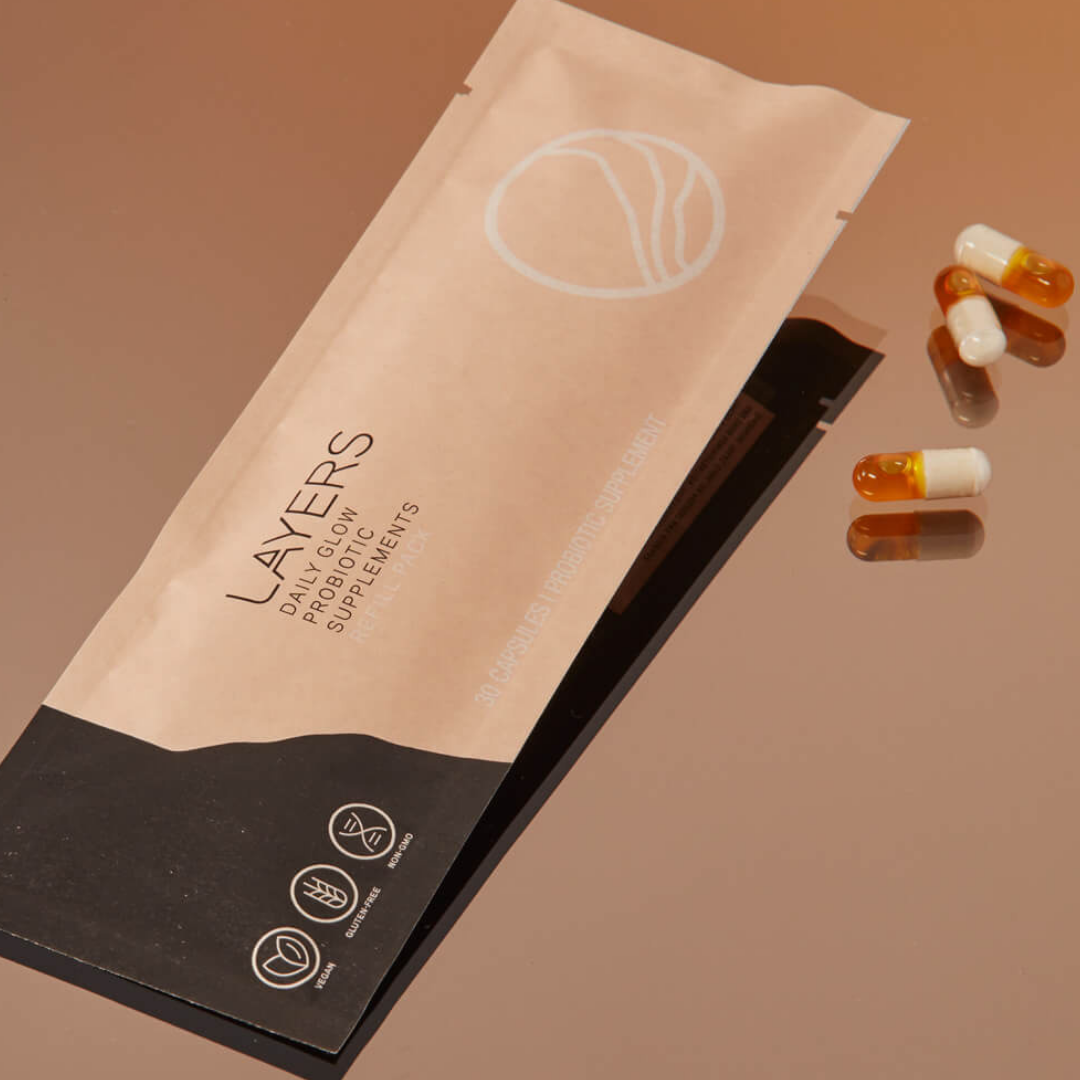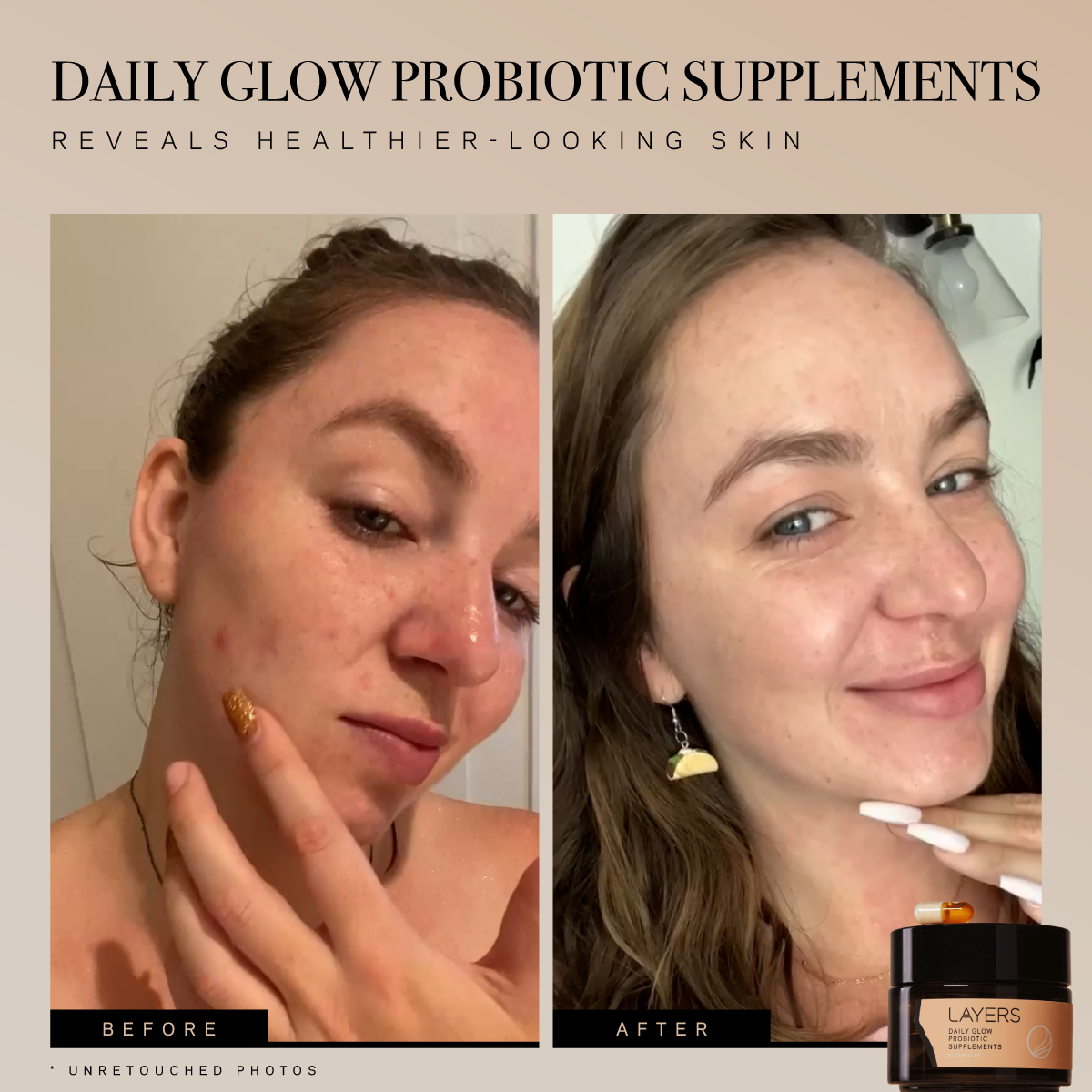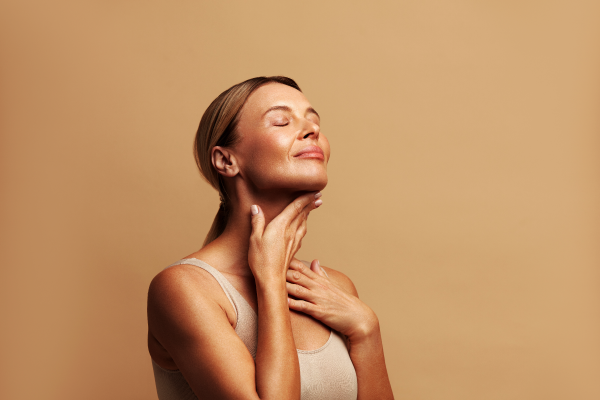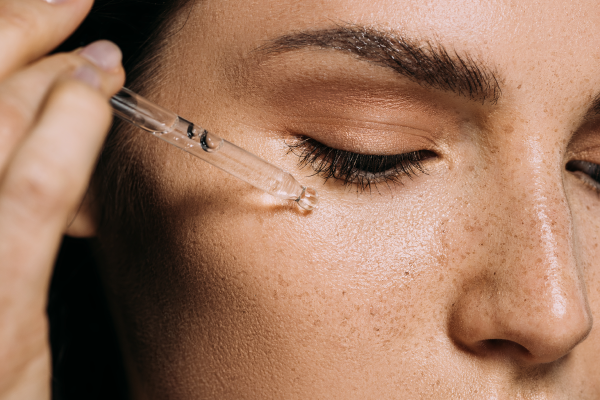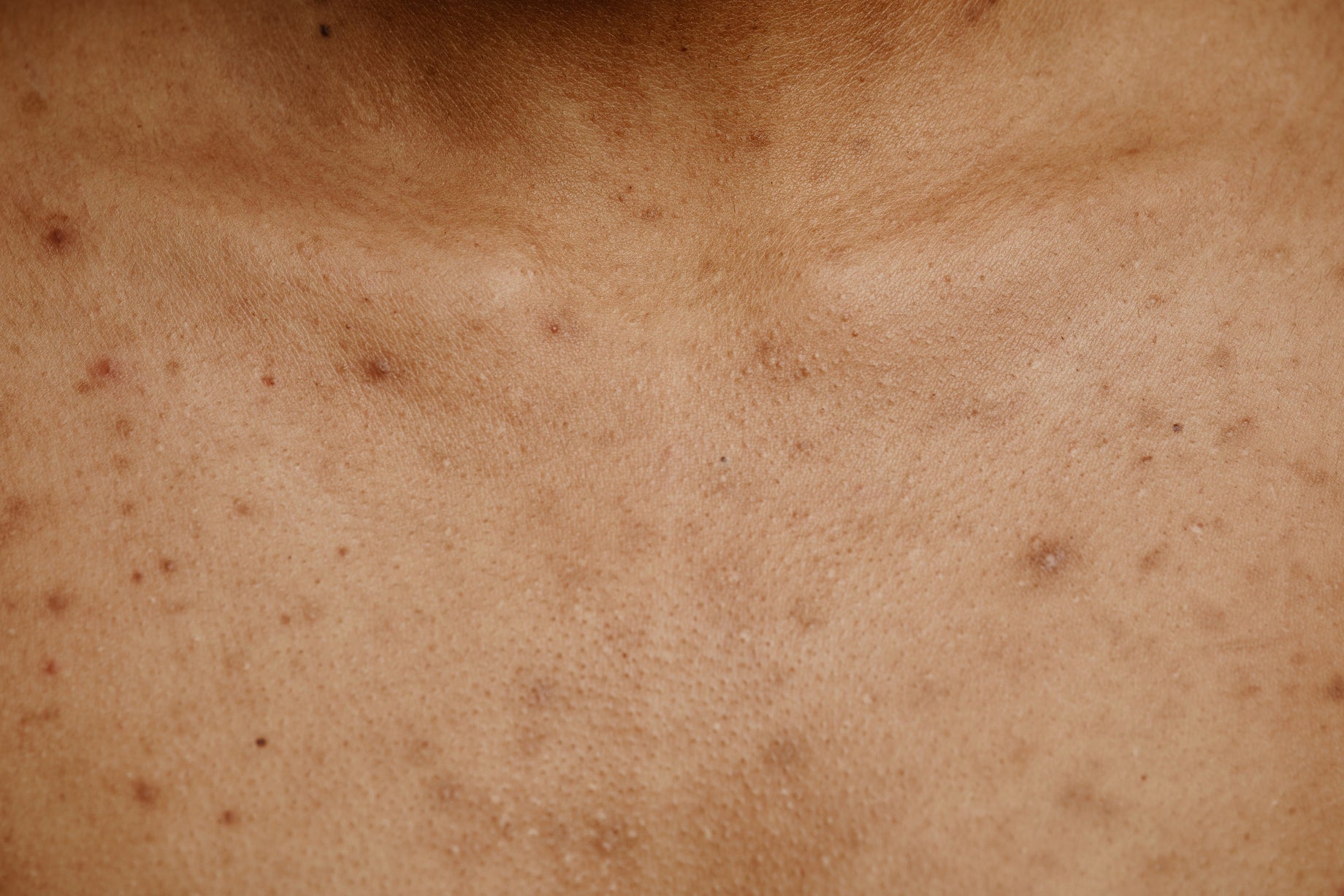The ultimate cheat sheet for an enviable complexion.
If your reflection shows skin that looks a little worse for wear, that in itself can be frustrating. Understatement? Ok, sometimes it’s infuriating. But there’s more in the mirror than meets the eye.
Beyond the skin, as you go deeper into the cells and muscles and tissues that make up your body, eventually you’ll get to the center of it all. Nope- it’s not your brain. It’s your gut. And while it’s not referred to as your brain, it turns out that the gut really is the captain of the ship.
GOOD SKIN STARTS FROM THE INSIDE-OUT
If you think that buying and rotating through 1,000 different beauty products is the path to better skin, think again. The truth is that your body knows what it’s doing. Your only job is to support it. Here are 10 simple lifestyle tips for healthy, glowing skin.
#1: Focus on whole foods
Our bodies were designed to consume and process natural, whole foods. Just like you wouldn’t feed a car a milkshake and expect it to run properly, you can’t expect your organs to function at their best if you’re not fueling them with what they need.
It’s also abundantly clear that we live in a fast-paced, fast-food-focused world. So don’t stress over dietary perfection. If you can aim for 80% whole foods and limit your intake of processed foods to 20%, that’s a win!
#2: Pre-game with prebiotics
Gut health is a fundamental part of overall health. And do you know what your gut loves? Prebiotics. These are a precursor to probiotics. So, what are they exactly, why are they so important, and how do you get more of them?
Prebiotics are foods that the microorganisms in your gut love to eat. They keep your probiotics happy and well-fed so they can do their job. Prebiotics are responsible for healthy bowel function, they improve the rate of phosphorous absorption to help keep your bones strong, and they create the tiny neurotransmitters that are responsible for communication between the brain and your gut.
You can add more prebiotic foods to your diet by consuming fermentable soluble fiber. The most common forms are found in foods with inulin, pectin, and resistant starches.
-
Inulin: Aliums (onions, garlic, leeks), asparagus, chicory root
-
Pectin: Raspberries, apples, carrots, and tomatoes
-
Resistant starches: Beans and legumes, potatoes (boiled and cooled), oats, and barley
#3: Keep calm with anti-inflammatories
When the house is on fire, everything is out of whack. That’s what inflammation does to the body. If an infection, allergy, or even air pollution, starts to irritate any biological component, inflammation occurs. If the source isn’t addressed in a timely manner, that inflammation can spread like wildfire. And one way that inflammation manifests is through your skin.
Inflammation changes the pH levels of your skin, resulting in breakouts due to dryness and/or overproduction of sebum. It can also be expressed as redness in your complexion and various forms of dermatitis, including rosacea and eczema.
The good news is that there are some simple ways to calm this inner fire by relying on a few natural anti-inflammatory friends. Drinking chamomile tea and green tea provides necessary antioxidants that will aid in keeping inflammation at bay. Natural antioxidants are also found in pomegranates. When applied topically, pomegranate extract can help soothe irritated skin.
#4: Support your gut flora
All types of living organisms call your gut “home”. A lot of those residents are created at birth and throughout your early years, and others depend on your lifestyle habits. This could include things like frequency of antibiotic use, diet, and how much you exercise.
The best way to support a healthy microbiome is to support the individual needs of your unique gut flora. Individualized microbiome-based therapies are the next frontier in science, but until we get to the point where such targeted treatments are realistic, then we must rely on what we do know: it’s all about diversity.
A 2019 study concluded, “Throughout life, the richer and more diverse the microbiota, the better they will withstand external threats.” Things like stress, antibiotic use, and a poor diet can all negatively affect the microbial diversity within your gut. You can support greater gut diversity by including lots of fiber in your diet and limiting sugar, animal-derived fats, and red meat.
#5: Stop the stress
Stress is no fun for the friendly microbes in your gut, and it’s a major factor in causing inflammation. Scientists have uncovered a direct connection between the stress response of the brain and its direct effect on the skin.
Referred to as the brain-skin connection, this relationship between stress and skin affects your skin's ability to protect from the elements, the rapidity of showing signs of aging, and skin flareups like atopic dermatitis. You can reduce stress by moving your body. Working out at the gym, going for a run or a walk, or doing yoga and stretching are all effective methods of de-stressing.
#6: Become a sleeping beauty
Sleep is a fundamental part of a healthy lifestyle. It also makes you feel better. When your brain and body get quality zzzz’s, the benefits are easy to see and feel. Yep, that also includes your skin!
One sleep study that focused on how shut-eye affects skin quality noted that not getting enough sleep led to significant transepidermal water loss. They discovered that good sleepers showed slower signs of intrinsic aging, better skin barrier function, and higher levels of satisfaction with their overall appearance. So whatever you need to do to prioritize a good night’s rest, think about these benefits and get motivated to seek better sleep.
#7: Pop a probiotic
Along with a healthy diet full of whole foods, probiotic supplements can help your gut microbiome flourish. When you populate your gut with more good bacteria, you’re helping the whole gut find a better sense of overall balance. Scientifically proven probiotics that target your skin microbiome are one way to help reinforce the good bacteria.
#8: Hydrate your body
Staying hydrated is important for your skin, but probably not for the reason you think. Drinking water doesn’t directly affect the appearance of your skin. But what it does do is something much more holistic.
When your body is properly hydrated, your organs function the way they’re meant to. Think of water more like the can of oil the Tin Man needed to operate his body in The Wizard of Oz. It just makes everything function better. Water brings vital nutrients to cells, offers protection to your joints, and it helps remove toxins from your body. All of this helps your microbiome, and in turn, your skin looks and feels better.
#9: Get topical with your skincare
Probiotics aren’t just for your gut. They can also benefit your body’s largest organ: your skin. When applied topically, studies have shown that probiotics can improve the appearance of your skin, especially if you suffer from acne, rosacea, atopic dermatitis, and even dandruff.
Switching from harsh, chemical-laden products to a probiotic skincare regimen is a good choice. Not only does the Layers Probiotic Skincare line pack plenty of skin and gut-friendly probiotics into our cleanser, moisturizer, serum, and oral probiotics, but it’s also a gentler method of supporting your skin that doesn’t strip away the good stuff.
#10: SPF: Don’t leave home without it
SPF starts on the inside…inside your house, that is. Before you even think about leaving for the day, always remember to slather on that SPF. Sun protection is the most important way to protect your skin from the harmful effects of UV radiation. It limits opportunistic free radicals from damaging your skin, reducing the chances of skin cancer, premature aging, and irritation from sunburn.
Reading through a checklist of 10 tips for healthy skin might imply that healthy skin takes a lot of work. But the opposite is actually true. Our only real job in the skincare game is to try our best to not intervene with nature. Making lifestyle choices that support the natural functioning of the microbiome is actually pretty simple. Healthy skin is all about adopting healthy lifestyle habits and sticking with them for the long haul.

